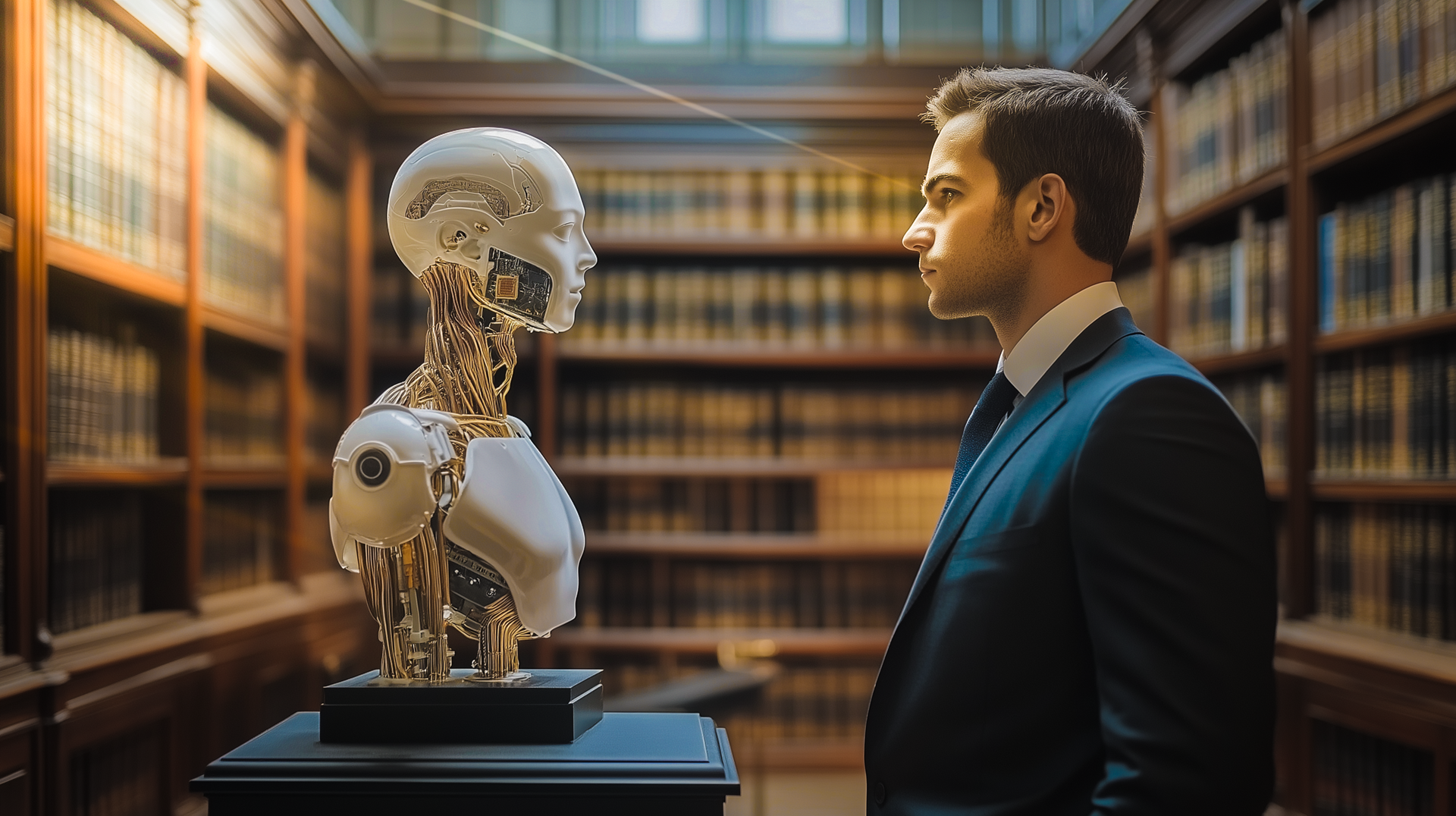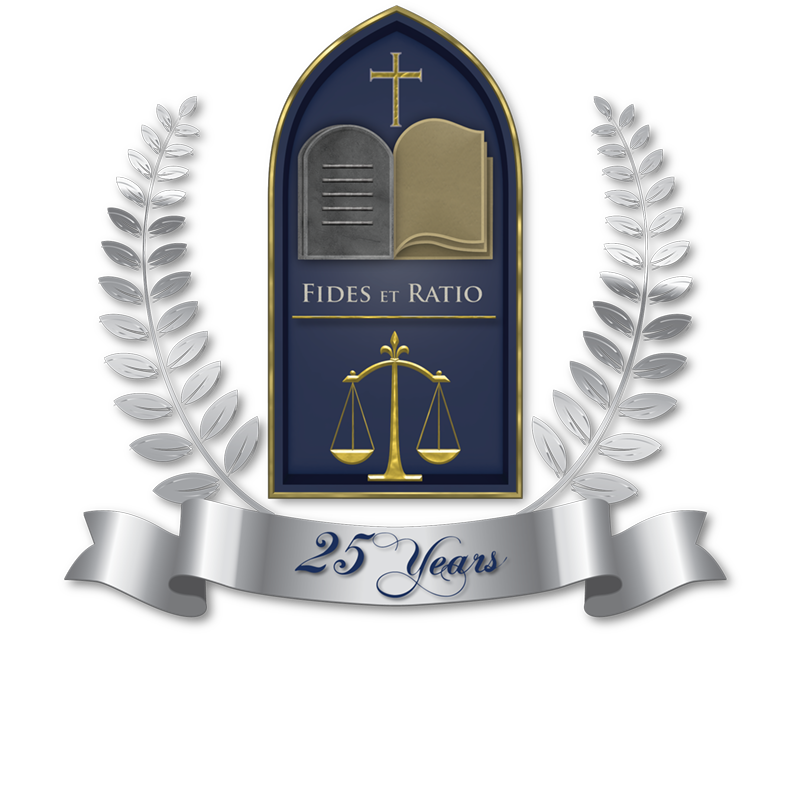The Dark Side of AI:
AI Programs and Attorneys Navigate Different Ethical Horizons

By Heather Ochs,
The Gavel, Contributor
J.D. Candidate, Class of 2025
Welcome to the courtroom of the future, where the scales of justice are not only held by human hands, but also calibrated by algorithms. Artificial intelligence (AI) has vastly changed how lawyers navigate complex cases, conduct research, draft legal documents, and more. While this technology is innovative and efficient, it has its drawbacks. Overreliance on AI, such as ChatGPT, has sparked ethical concerns within the legal community. As recently documented in 2023 by Thomas Reuters, the categories of high concern include accuracy and client confidentiality.1
ChatGPT was released on November 30, 2022, by an upstart called OpenAI.2 This technology was designed to provide “human-like responses to natural language queries”3 and has been trained on a vast amount of legal information, including legal precedent and case aw.4 Unfortunately, this is exactly where the accuracy limitation of the chatbot lies – ChatGPT has no source of truth and only knows the data it was trained on.5 If the chatbot does not have the case law or other information requested, it may provide “plausible sounding but incorrect” information just to provide an answer.6
In 2023, accuracy issues with generative AI were illustrated in the high-profile case Mata v. Avianca.7 In this case, plaintiff Roberto Mata sued the Avianca airline alleging a knee injury after being struck by a serving cart during his flight.8 When Avianca filed a motion to dismiss the complaint, Mr. Mata’s attorneys responded by filing a well-drafted 10-page brief in opposition, which included half a dozen supportive judicial opinions.9 There was only one problem: the cases did not exist.10 The brief’s author, Attorney Steven Schwartz, had relied exclusively on a Generative AI tool called ChatGPT, which completely fabricated the opinions and even created imaginary citations. 11 Schwartz was sanctioned subject to Rule 11 of the Federal Rules of Civil Procedure (FRCP), 12 stating in part that “a court may sanction an attorney for, among other things, misrepresenting facts or making frivolous legal arguments.”13 This encompasses the filing of court documents without exercising diligence in their preparation.14 Having acted in bad faith by relying on ChatGPT and failing to review a single case cited in his brief for accuracy, Schwartz was ordered to pay a $5,000 penalty and to send a copy of the fabricated cases to the judges improperly identified as having authored them.15 The Mata case serves as an important reminder that while AI tools provide incredible benefits to the practice of law, it has not yet reached a stage where it can be relied upon for substantial legal information.16
In addition to the accuracy drawbacks associated with AI, risks surrounding client confidentiality have not gone unnoticed by the legal community. The attorney-client privilege attaches to communications made by a client to an attorney to obtain legal advice.17 Confidentiality is a crucial piece of the attorney-client relationship, which is threatened using AI tools, such as ChatGPT, to store client information. Due to the permissive terms of ChatGPT, which grants third parties access to user data, any input of sensitive information may constitute an unauthorized disclosure and a breach of ethical standards.18 Chief Justice John Roberts even raised the issue in his year-end report on the federal judiciary in which he questioned the negative implications of AI on the invocation of legal privileges.19
Under the Model Rules of Professional Conduct (MRPC), lawyers are required to take reasonable steps to protect client information from unintended recipients.20 This applies to how information is transmitted, stored, and destroyed when utilizing AI and other forms of technology.21 To OpenAI’s credit, the company has improved ChatGPT to keep personal information secure.22 As of April 2023, ChatGPT now allows users to turn off chat history, which prevents the technology from using conversations for training and improvement.23 However, this is not a guarantee that user data is completely safeguarded. Attorneys are still obligated to be aware of the risks and to take extra precautions to protect their clients’ information from falling into the hands of unintended third parties.
In the legal profession, we take an oath and are obligated to hold ourselves to the highest of professional and ethical standards. AI tools like ChatGPT have no such obligation. Part of those responsibilities include investigating the shortcomings of AI tools we integrate into our legal practice and proceeding with the utmost caution when handling confidential information. Stemming from Mata, a practical lesson has been served upon the legal community: Do not leave yourself susceptible to the dark side of AI.
References:
1 ChatGPT and Generative AI within Law Firms, Thomson Reuters Institute, https://www.thomsonreuters.com/en-us/posts/wp-content/uploads/
sites/20/2023/04/2023-Chat-GPT-Generative-AI-in-Law-Firms.pdf (last visited January 28, 2024).
2 Blog: Introducing ChatGPT, OpenAI, https://openai.com/blog/chatgpt (last visited January 28, 2024).
3 Nicole Black, The Case for ChatGPT: Why lawyers should embrace AI, ABA Journal, https://www.abajournal.com/columns/article/the-case-for-chatgpt-why-lawyers- should-embrace-ai (last visited January 29, 2024).
4 ChatGPT and AI Technology: How Does AI change the legal industry, Plakas Mannos, https://www.lawlion.com/news/chatgpt-ai-legal-technology (last visited January 30, 2024).
5 Supra. Note. 2.
6 Id.
7 Mata v. Avianca, Inc., No. 22-CV-1461 (PKC), 2023 WL 4138427, at *1 (S.D.N.Y. June 22, 2023).
8 Id.
9 Id. at *2.
10 Id. at *3.
11 Id.
12 Id. at *13.
13 Id. at *11.
14 Id.
15 William A. Ryan, Practical Lessons from the Attorney AI Missteps in Mata v. Avianca, Association of Corporate Counsel, https://www.acc.
com/resource-library/practical-lessons-attorney-ai-missteps-mata-v-avianca#:~:text=LoDuca.,York%20to%20sanction%20both%20attorneys (last visited January 28, 2024).
16 Owen R. Wolfe, Update on the ChatGPT Case: Counsel Who Submitted Fake Cases Are Sanctioned, Seyfarth, https://www.seyfarth.com/news-insights/update-on-the-chatgpt-case-counsel-who-submitted-fake-cases-are-sanctioned.html (last visited January 31, 2024).
17 Fisher v. United States, 425 U.S. 391, 403 (1976).
18 Privacy Policy, OpenAI, https://openai.com/policies/privacy-policy (last visited January 30, 2024).
19 Chief Justice John Roberts, 2023 Year-End Report on the Federal Judiciary (2023), https://www.supremecourt.gov/publicinfo/year-end/2023year-endreport.pdf (last visited January 31, 2024).
20 Model Rules of Prof’l Conduct R. 1.6 (2024).
21 Id.
22 Blog: New ways to manage your data in ChatGPT, OpenAI, https://openai.com/ blog/new-ways-to-manage-your-data-in-chatgpt (last visited January 29, 2024). 23 Id.




